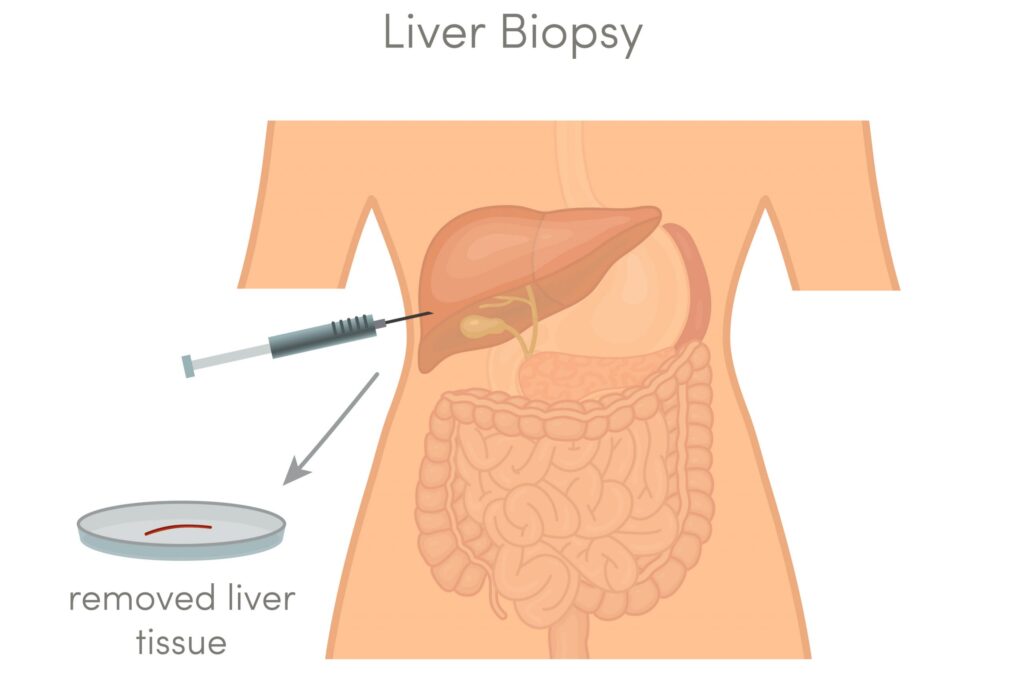Liver Biopsy
What is it and why do I need it?

Liver biopsies are performed in many patients with various types of liver diseases to determine the cause of the liver disease and the extent of scarring or damage to the liver. A biopsy is usually recommended when your physician feels that the usefulness of the information gained from a liver biopsy outweighs the risks of the biopsy itself.
Important!
Medications: If you take insulin or other diabetic medicines, dosage adjustments will be provided for you. Bring your insulin with you so that you can take it after the procedure if necessary. If you are on blood thinners let us know at the time of scheduling because they will need to be held. All other meds should be taken at their usual time with a few sips of water.
The risks of liver biopsy are very small (under 1%) and include internal bleeding, abdominal pain, puncturing of the gallbladder, bile ducts, lung, intestine, or kidney, and low blood pressure. In rare cases, internal bleeding can be severe and require hospitalization and management. In even rarer cases, liver biopsies can cause death (less than 1 out of every 10,000 liver biopsies) from complications associated with the procedure.
Your liver biopsy will be performed by our radiology department. You will be brought to a procedure room where you will lie on your back with your right arm raised above your head. You will be asked to hold your breath while your liver is located with an ultrasound machine. You will be given an injection of numbing medication to that area. The liver tissue will be obtained through the skin using a hollow needle. The procedure takes about 20-30 minutes.
You will stay in the recovery unit for 2-3 hours to ensure there are no complications. You must have someone at least 18 years old with you during the entire time from check-in through recovery.


